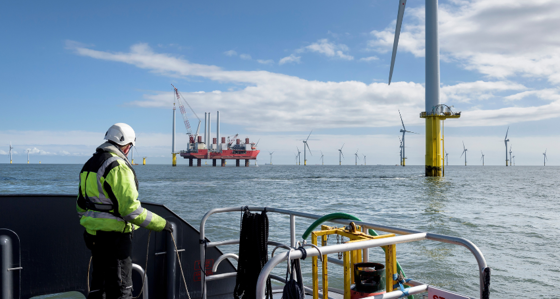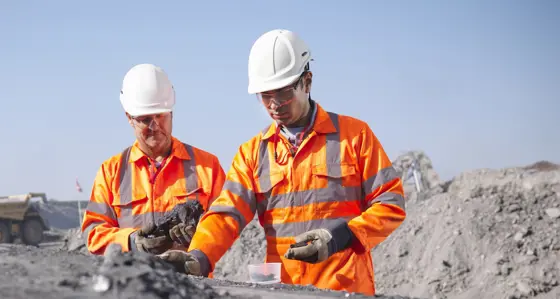
Kickstarting Sweden’s hydrogen ecosystem: lessons from Europe
6 min read 1 December 2024
In September 2024, Baringa brought together the Confederation of Swedish Enterprise (Svenskt Näringsliv), the Swedish Parliament Committee on Industry and Trade, and experts from the Dutch, German, and British hydrogen sectors for a roundtable.
Here are the takeaways.
Hydrogen is a key building block for achieving a climate-neutral economy
The Swedish electricity system is nearly 100% fossil free, which puts it in a strong position to achieve its 2045 net-zero target. However, electricity production still needs to double by 2045, and discussions surrounding Sweden’s energy transition are increasingly looking at hydrogen’s role in the future energy mix.
As Robert Thornbum, project manager at Svenskt Näringsliv, explained: “Sweden only has one gas pipeline, so a big issue is how to provide cost-effective hydrogen. There’s a lot of focus on how to establish the value chain. The basic assumption is that there are good conditions for wind for green hydrogen, with blue hydrogen needed in the first wave.”
The Netherlands and Germany are two of the world’s greatest hydrogen consumers, with hydrogen used for industries such as fertiliser, steel, and ceramics. The UK has strong targets of 10GW of domestic production by 2030 and is now entering the second round of incentivised contracts. These markets provide examples of how to start with a focused strategy and build out.
We need cross-border cooperation to develop the hydrogen ecosystem
European cooperation will play a vital role in enabling hydrogen. Bert Kiewiet, hydrogen manager for Germany at Gasunie, emphasised the importance of open-access infrastructure: “The energy transition requires cooperation. We don’t develop infrastructure for ourselves, and we don’t own or produce molecules for ourselves – it’s all open access. We must find solutions to collaboratively firm up the hydrogen market Europe-wide.”
As part of these efforts, Gasunie has looked at areas such as cross border connections and researched reducing regulatory barriers between countries. This is helping ensure the Netherlands and Germany take the right approach from the beginning, so there’s a robust foundation for scaling.
Politicians must enable speed and reduce risk
Politicians have an essential role in providing the right regulatory and investment climate. There is consensus that when political decisions are delayed, the value chain burns money, and projects end up postponed or cancelled.
One delegate from RWE summed this up nicely: “We’re all trying to find the right way to use taxpayers’ money. To do that, all stakeholders must move together. Then, we can build momentum and collectively make incremental progress.”
Alliander is investing in hydrogen pilot projects at the distribution level. Elbert Huijzer, senior strategist at Alliander, explained that their experience showed the importance of this incremental progress: “Because it’s difficult to introduce something completely new on day one, starting with small-scale projects has helped stakeholders gain knowledge and regulatory insights. Legal frameworks have been important for the pilot projects – we’ve needed frameworks specifically designed for the pilots, together with strong collaboration with the government, the Department of Consumer Rights and the Department of Safety.”
Successful scaling comes from a systems approach
René Schutte, director at HyNorth, emphasised that there are three priorities for hydrogen: “Scaling up, scaling up, and scaling up.” And that requires a systems approach.
This is because of the ‘ostrich-and-egg situation’ for the hydrogen economy. As René explained: “It’s a much larger and complex issue than the chicken-and-egg challenge. We need to build the full value chain from production to usage, as well as the ecosystem with industry and the skills to build and maintain infrastructure. This requires synchronised investment decisions. Otherwise, it’s too risky for any player to start independently.”
In most countries, network infrastructure and storage are lagging production, which creates a challenge. Shane Heffernan from Baringa discussed how the UK is tackling this with an industrial cluster approach, with the gas Transmission System Operator (TSO) given a strategic mandate to connect clusters. The UK’s business model was one of the first in Europe developed to incentivise offtakers, and there’s legislation for funding by gas levies.
Despite short-term delays, the long-term outlook is strong
Yes, it’s a challenging time for hydrogen, with rising prices and interest rates, network congestion, and lagging demand. The war in Ukraine has exacerbated these challenges, demonstrating the need for large-scale flexibility to diversify supply.
But the outlook is robust. The Netherlands, Germany, and the UK show there are working models for spreading risk between government, infrastructure developers, and network users. And EU, regional, and national funding is being put towards skills development.
With an informed strategy, cooperation, and the right government incentives, hydrogen can achieve the scale it needs. As René Schutte from HyNorth said: “Companies have the ambition, and everybody believes hydrogen is the way to go.”
If you’d like to discuss ways of driving development in the hydrogen ecosystem, contact Marcel Volkerts or Shane Heffernan. To hear about future Baringa events, look out for updates in our newsletter .
Our Experts


Related Insights

Trump trade tariffs: Impact on the UK EV uptake
The global automative industry is at a critical juncture, shaped by intersecting forces of electrification, geopolitical trade tensions, and national decarbonisation policy.
Read more
Driving economic growth by securing a cleaner and resilient future for the North Sea
Our report, published in conjunction with Offshore Energies UK (OEUK), outlines how the North Sea can continue to play a pivotal role in the energy system as the world shifts to net zero, while positioning the UK as a resilient, innovative and competitive player in the global energy landscape.
Read more
From early adopters to early majority: Driving the next phase of EV growth
As EVs are moving beyond the early adopter phase, what are the principles needed for mass market adoption and progressing towards net zero targets?
Read more
Crossing the industry divide to drive decarbonisation across Asia-Pacific
Resources organisations are identifying opportunities in the unfamiliar overlap between energy, mining and metals.
Read moreIs digital and AI delivering what your business needs?
Digital and AI can solve your toughest challenges and elevate your business performance. But success isn’t always straightforward. Where can you unlock opportunity? And what does it take to set the foundation for lasting success?